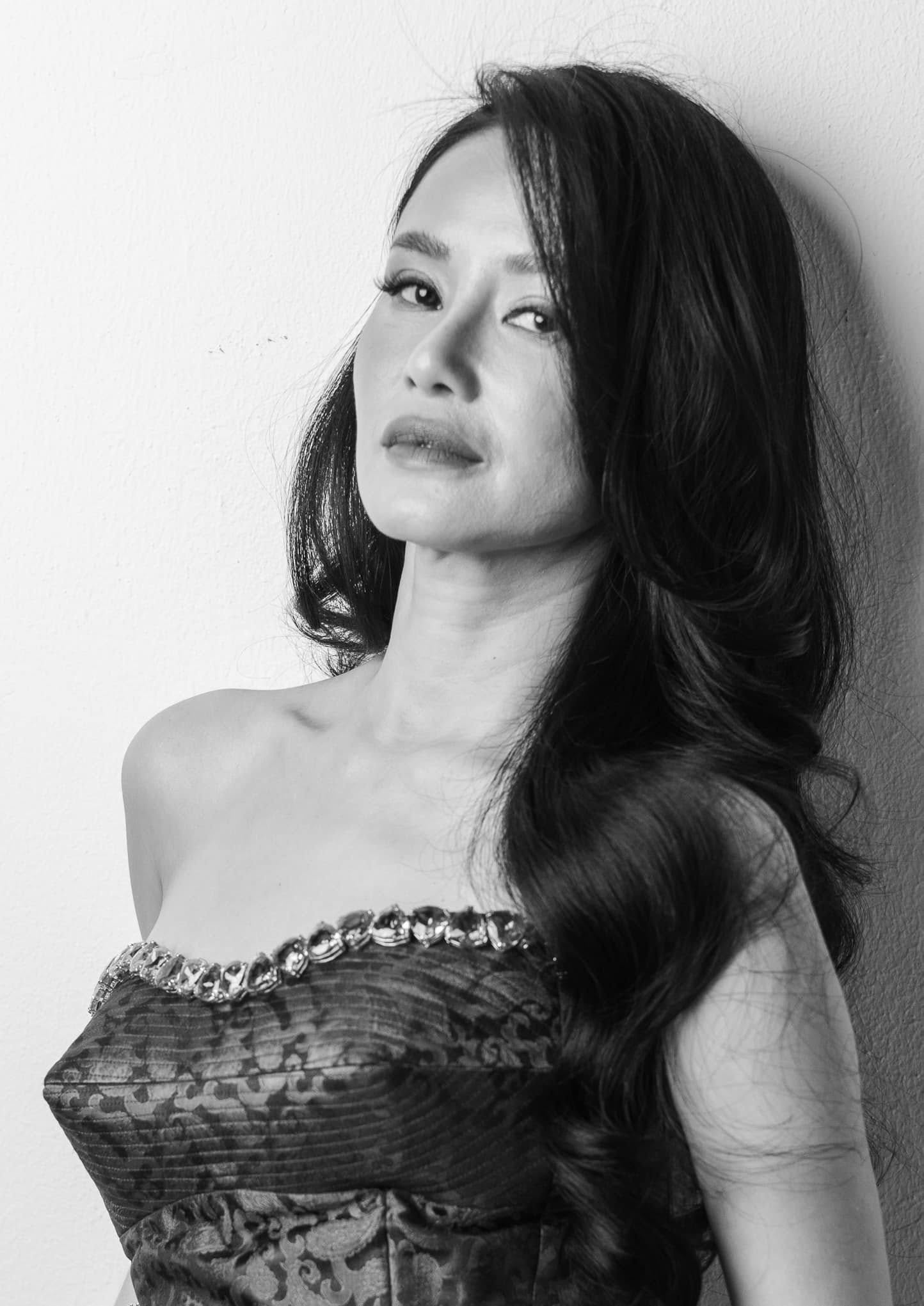
After a period of fighting cancer, Hong Nhung returned to the music scene with the MV Tu moi . Collaborating with her in this project are relatively promising artists of the Northern art scene, from Lope Pham - the man behind the success of the album 99% (MCK), Trung Tran - an R&B singer with a rather new color, to director Phuong Vu.
Still with the delicate handling of her voice, this time, Hong Nhung has renewed herself with a more rhythmic R&B hiphop style, instead of the smooth, gentle melodies of light music that the audience is familiar with her. The female artist herself also confirmed that she had to completely change the way she sang in this project.
Hong Nhung changes
Easily recognizable, Tu cau has a dark tone, from the music to the MV images. Built like a monologue, when the female character questions herself if she is losing herself in love, the product's arrangement is not too dense with layers of sound, but instead leaves a lot of space for the lyrics and vocals.
The musical space of the work is opened by the piano combined with the melancholy, floating synth pad sound in the background, keeping the emotions floating. In that context, Hong Nhung's warm voice has a hint of a confession, a whisper, expressing part of the spirit of the product.
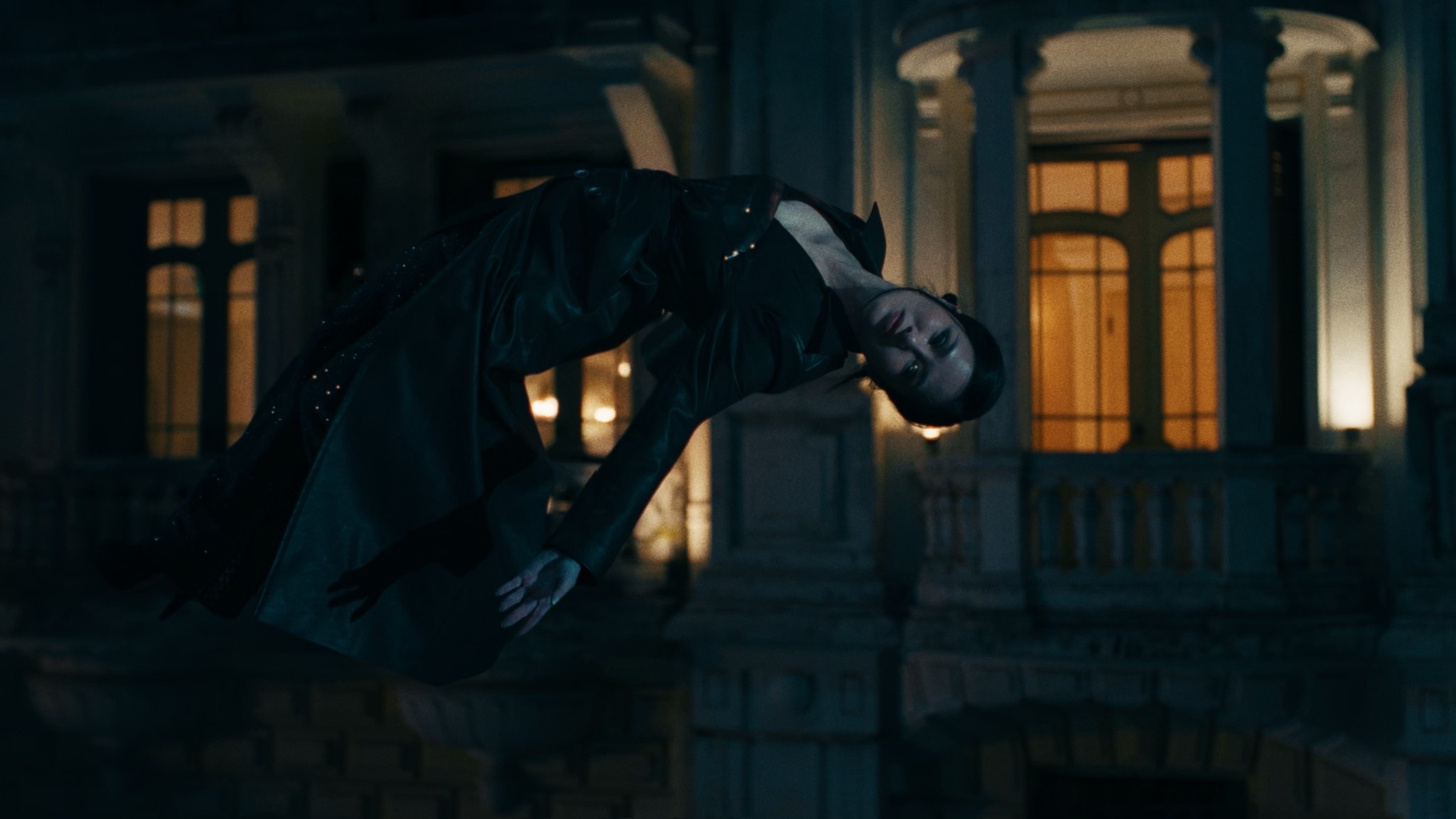 |
Wonder marks Hong Nhau's return after a health incident. |
However, the audience only truly felt a somewhat new Hong Nhung when the song's rhythm was pushed up, combined with R&B and hip-hop sounds - especially the 808 drums mixed gently in the chorus. Lope Pham intentionally reduced the weight of the hip-hop sounds, not trying to create a grand climax in the production stage, but focusing on expanding the space so that Hong Nhung's voice could be heard naturally and completely.
In a composition and arrangement that is more modern and fresh than Hong Nhung's previous work, the female singer still clearly shows her class in singing. She sings each word clearly, even in fast-paced and wide-ranged passages. The characteristic R&B vibrato is also handled by her at a higher level, rich in emotion, sophistication and technique.
Different from the dark, somewhat heavy tone of Hong Nhung's singing, Trung Tran's part brings a feeling of lightness and equanimity - just like the floating, dreamy image in the MV. The use of nylon strings combined with drums creates a romantic space, reminiscent of Lope Pham's arrangement of Suit & Tie (MCK) in 99%, but Trung Tran's performance is more ethereal, as if talking about an unreal love. The way of singing R&B with the way of sliding words and emphasizing the melody also helps this part become closer, easily touching the emotions of young audiences.
Creating two experiences with different colors helps Wonder bring a certain excitement in enjoyment.
As for the lyrics, although it has a relatively abstract theme, the language in the song is not heavy on philosophy, vague metaphors or literary elements like Hong Nhung's previous ballads. Instead, Tu moi uses simple, clear words, conveying the content directly. In addition, the lyrics also have light rhymes, which is convenient for conveying the melody.
In fact, the composition and arrangement of the product are not too special, with layers of sound and a melody that is quite familiar to the general audience. However, the way Hong Nhung handles her voice and the theme that the song exploits can be considered rare in current hip hop R&B products. That is what gives Tu moi a unique feature.
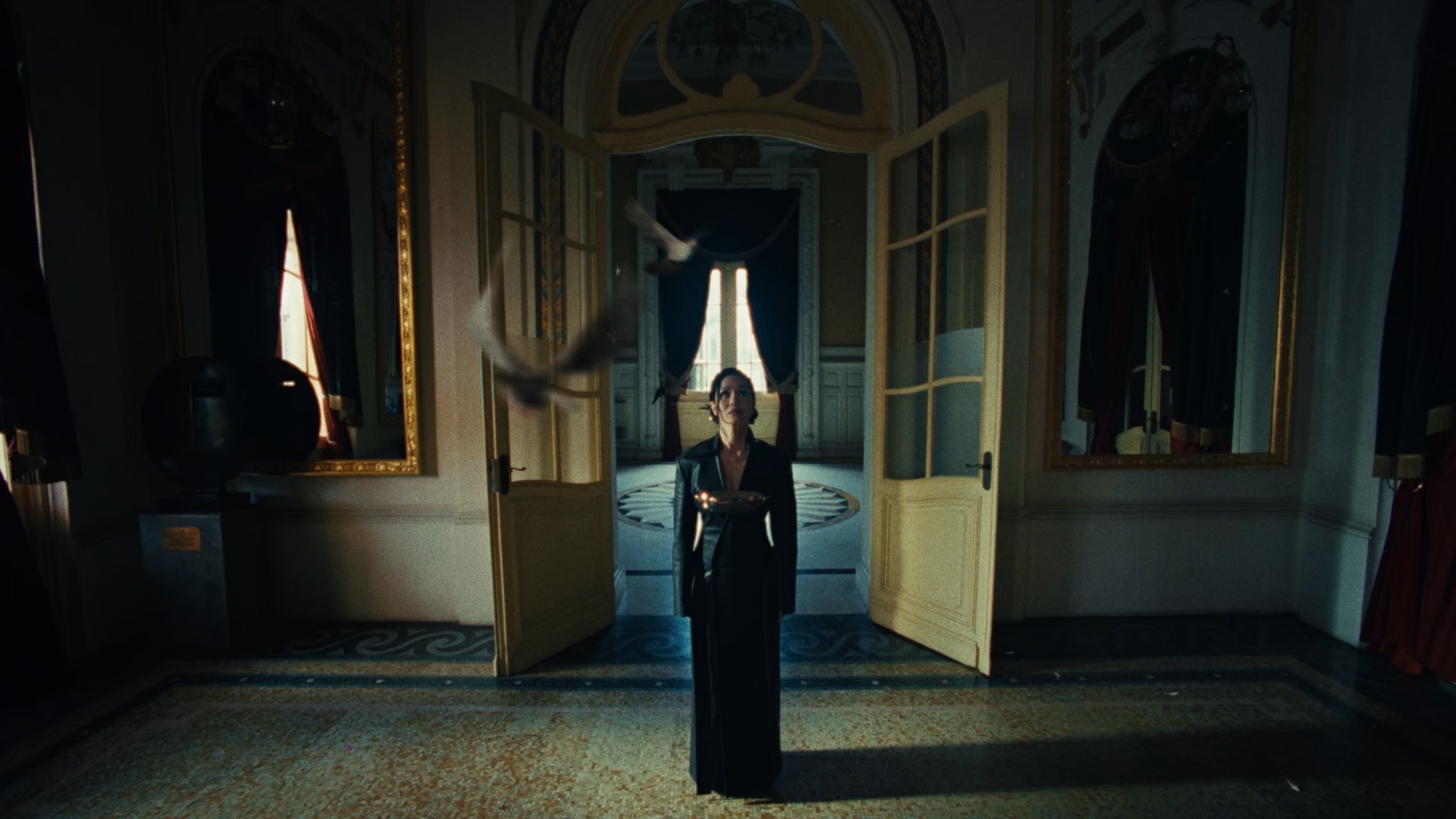 |
Hong Nhung tries her hand at fast-paced R&B music. |
However, the chorus of the song does not really create a highlight. The repetition of the structure "Sometimes I love you too much... Sometimes I love you too much..." helps maintain a deep, lingering mood, but lacks a clear climax and the necessary catchiness. This makes it difficult for the song to create a strong viral effect in the Vpop market - where audiences often favor songs with clear structures and outstanding hooks.
Many icon images
The visuals in the MV Tu mo have also received many positive responses since its release, thanks to being directed by a highly regarded MV director. Inspired by the works of René Magritte, who is famous for his surrealist paintings (escaping reality), Hong Nhung's brainchild is built from many symbolic details, somewhat puzzling the audience.
Director Phuong Vu skillfully brought the audience into the mind of a lonely woman in a love relationship, to the point of not recognizing who she was. In the first scenes of the MV, when everyone was in harmony, the audience only saw the character Hong Nhung lost, confused, not knowing who she was and where she was.
The camera then pans to a frame that mimics Magritte’s famous painting The Lovers (1928) – a kiss separated by a layer of fabric, suggesting physical intimacy but emotional distance. However, in the MV, this part is also embellished with the detail of the girl bleeding, as if she is suffering from the pain of that distance.
The following images, such as Hong Nhung being overwhelmed by her inner stage, the scene of flying into the sky like the Golconda painting, or the scene where she sees herself in the form of the person she loves, all reflect a blind love, love to the point of forgetting oneself.
Not stopping there, the MV is still full of other symbolic images, challenging the audience's judgment and perception, such as the scene of the dove, the bird-headed girl, or the ancient tree being uprooted. The continuous use of symbolic images makes the story vague, making it somewhat difficult for the audience to grasp if they only watch it a few times.
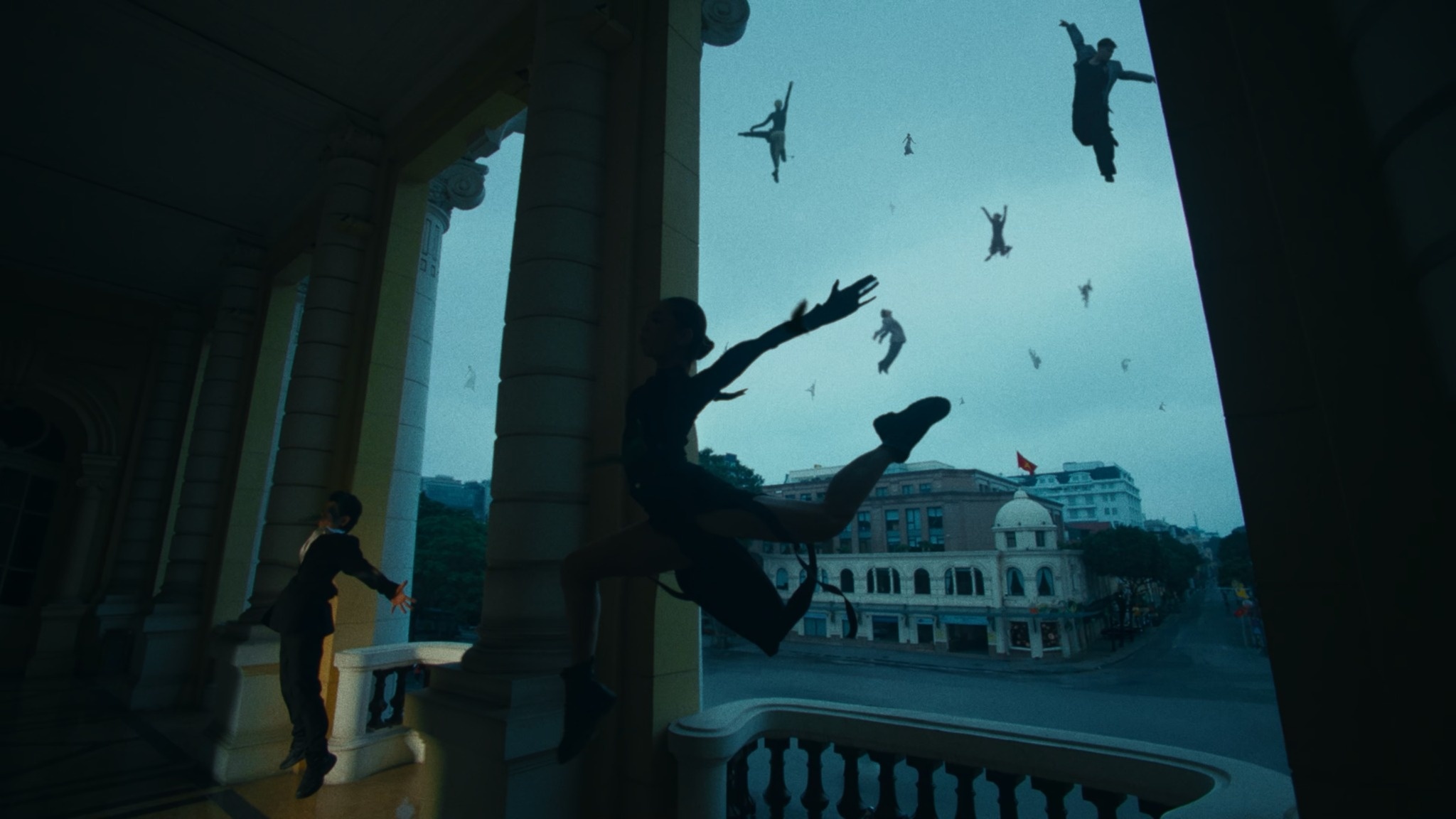 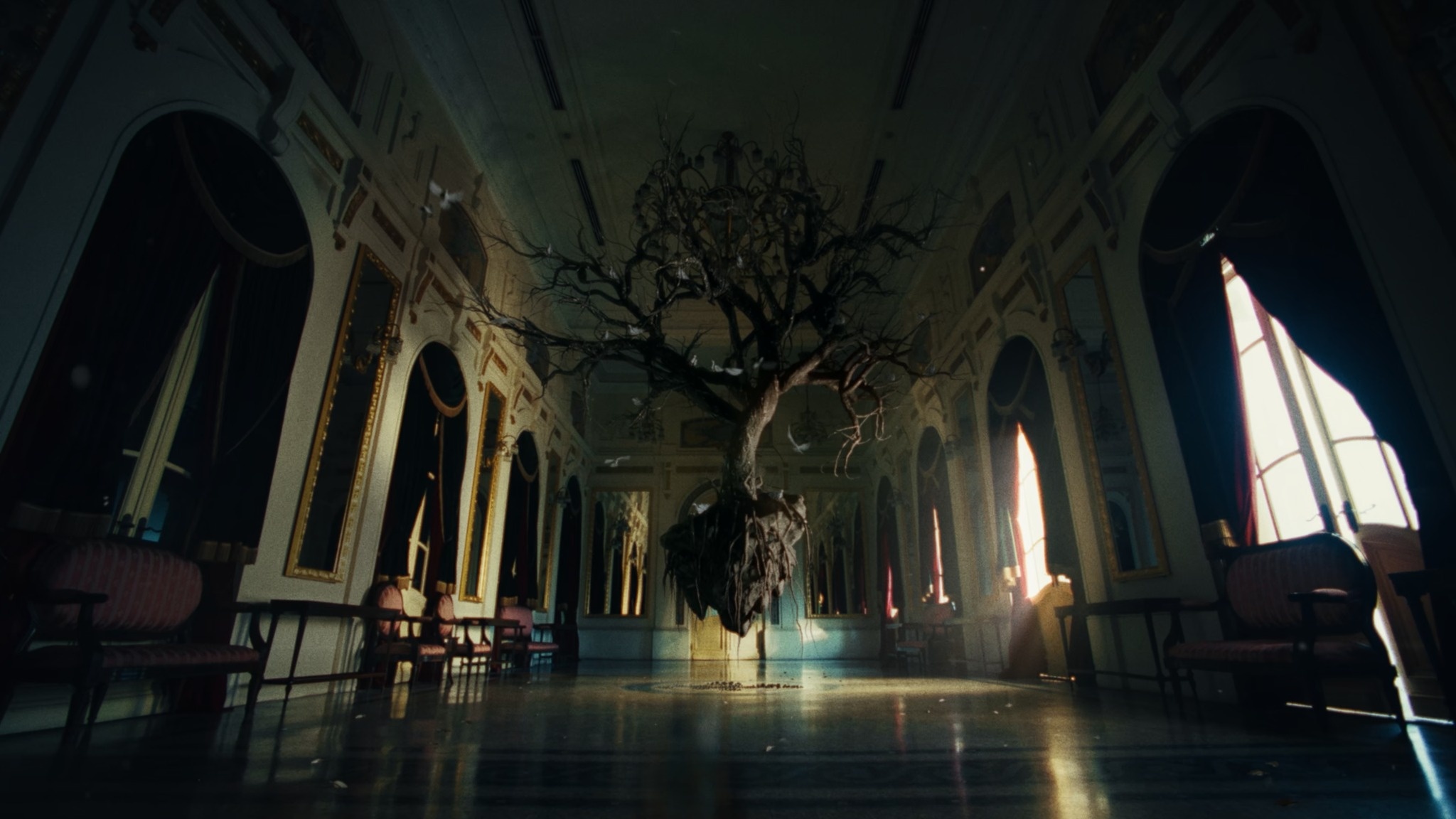 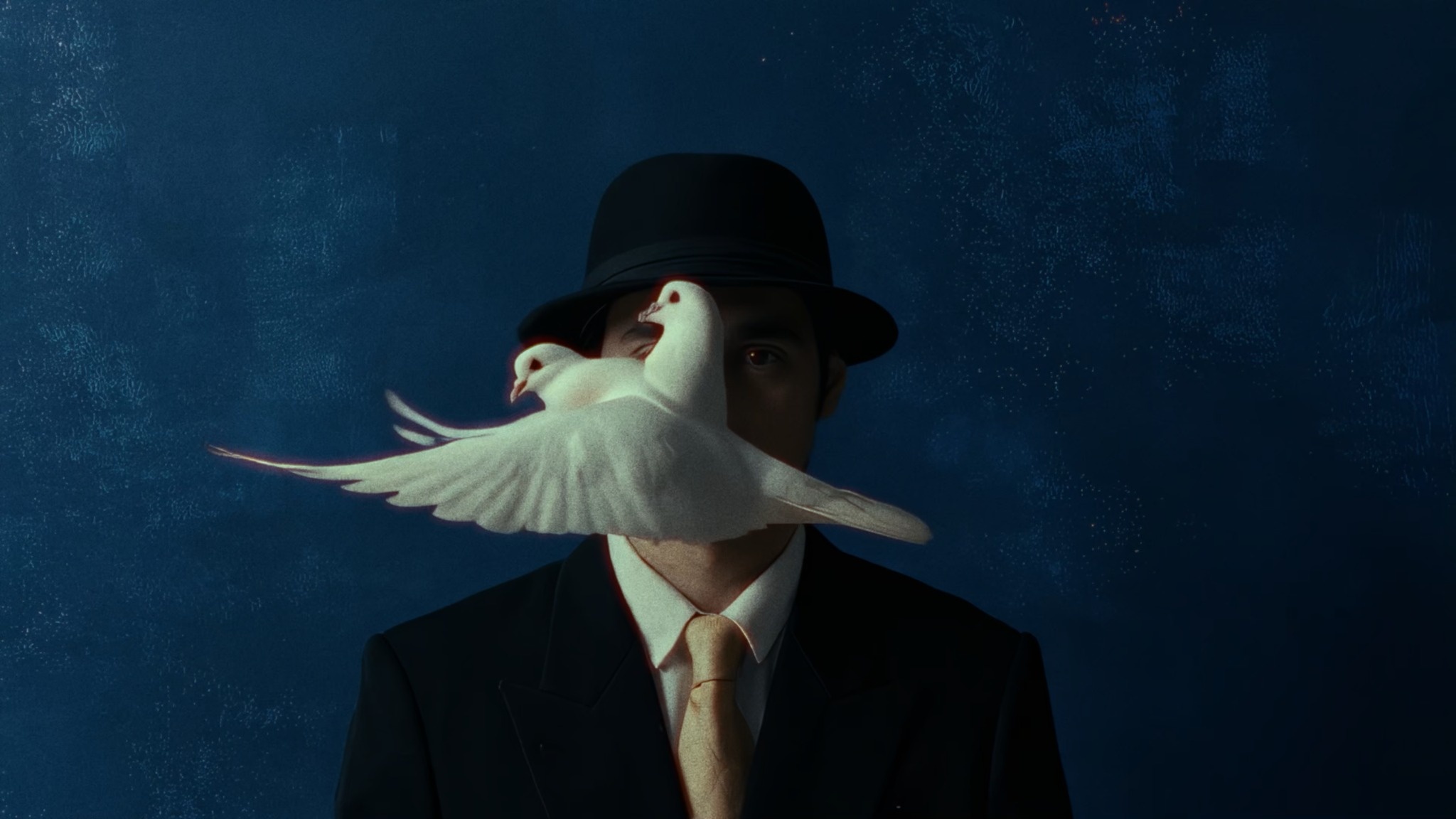 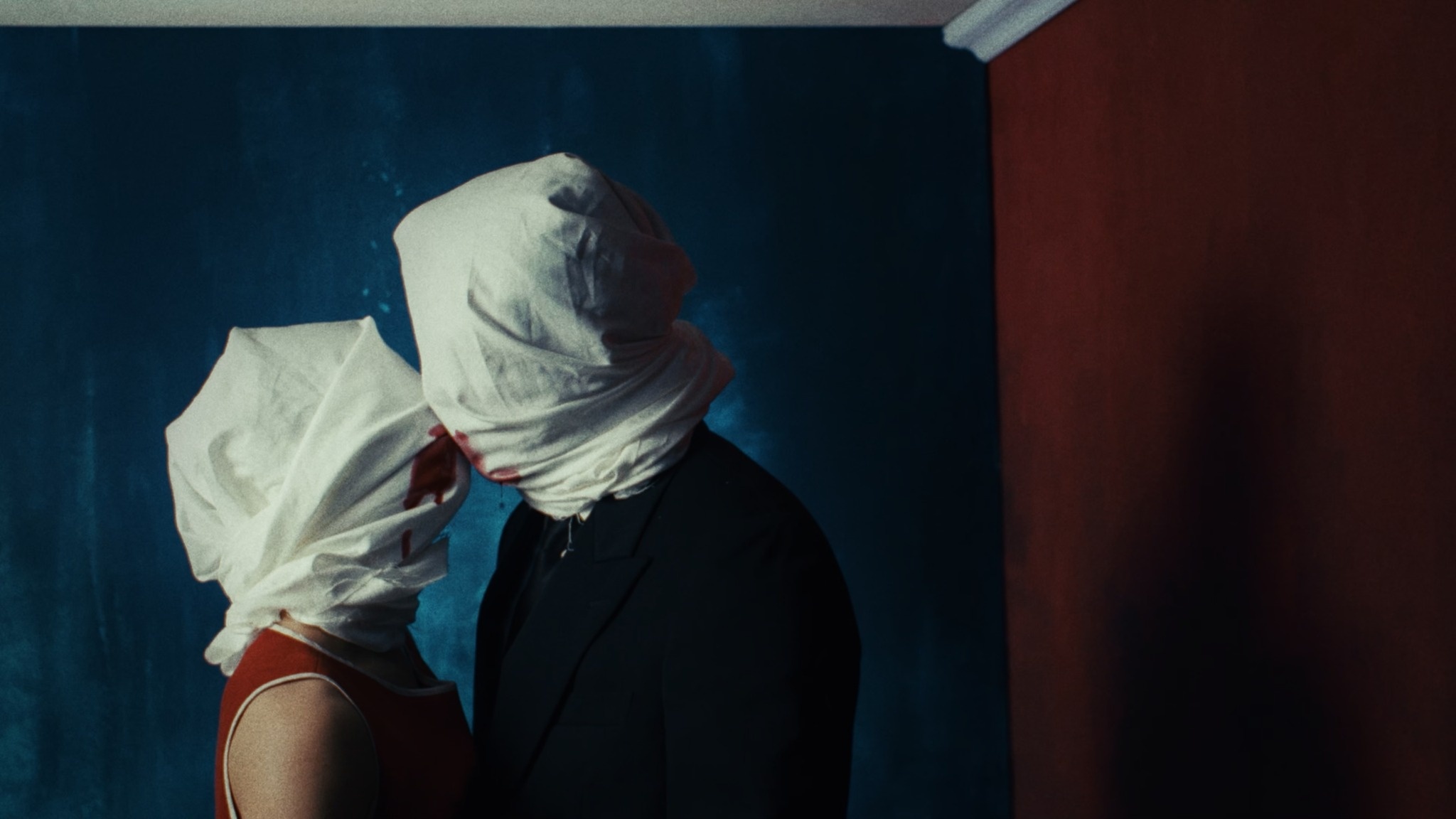 |
The MV is inspired by the works of famous painter René Magritte. |
However, thanks to the aesthetics in the way the MV was filmed, it was still enough to keep viewers interested. The rhythmic, vibrant camera shots not only created a visual impression, but also helped maintain the audience's interest, making them want to continue watching even if they didn't fully understand the content.
Not to mention, the storyline in the MV can also be understood in many different ways. The blind love mentioned can completely be a passion for art. The image of a tree - a symbol of vitality - floating inside the theater can also be understood in this way. During the days of fighting the disease, Hong Nhung almost lost her way, feeling like she was no longer herself at the prospect of not being able to stand on stage.
Finally, for Hong Nhung’s fans, seeing her return with a fresher, more vibrant image after her health crisis is certainly a happy thing. As for the audience who simply love music, it is clear that the female singer’s experiments have more or less brought an interesting product, even creating expectations for the next changes in Hong Nhung’s music.
Source: https://znews.vn/hong-nhung-sau-bien-co-post1569162.html





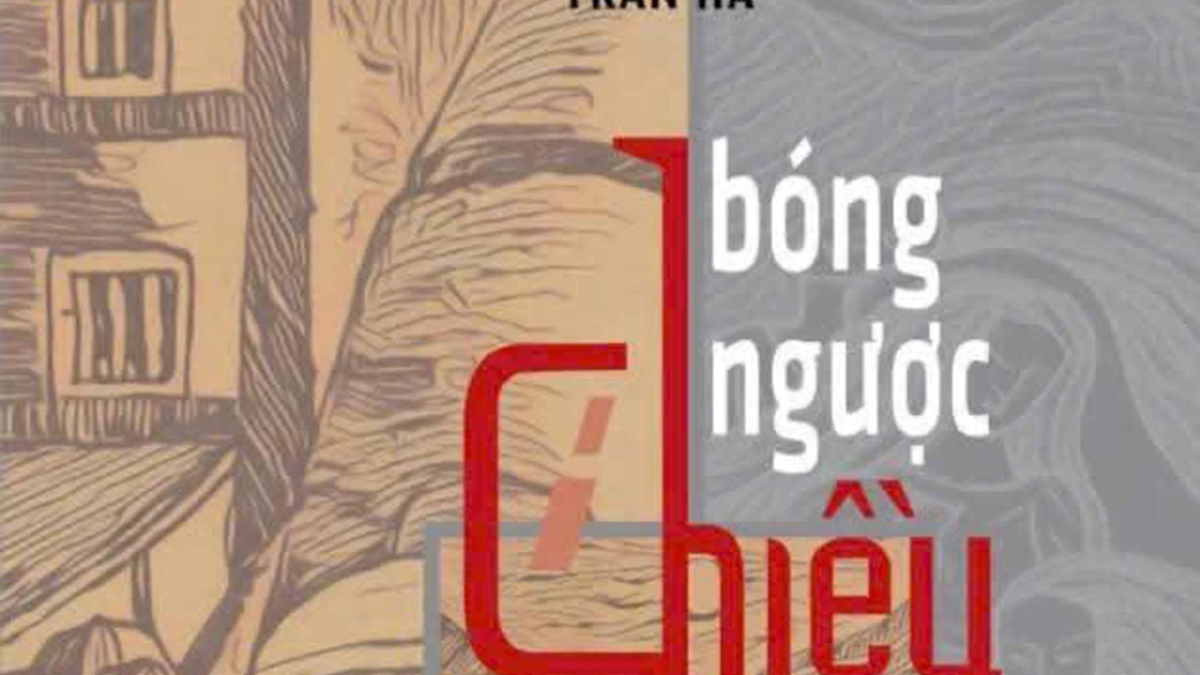




![[Video] More than 100 universities announce tuition fees for the 2025–2026 academic year](https://vphoto.vietnam.vn/thumb/1200x675/vietnam/resource/IMAGE/2025/7/18/7eacdc721552429494cf919b3a65b42e)
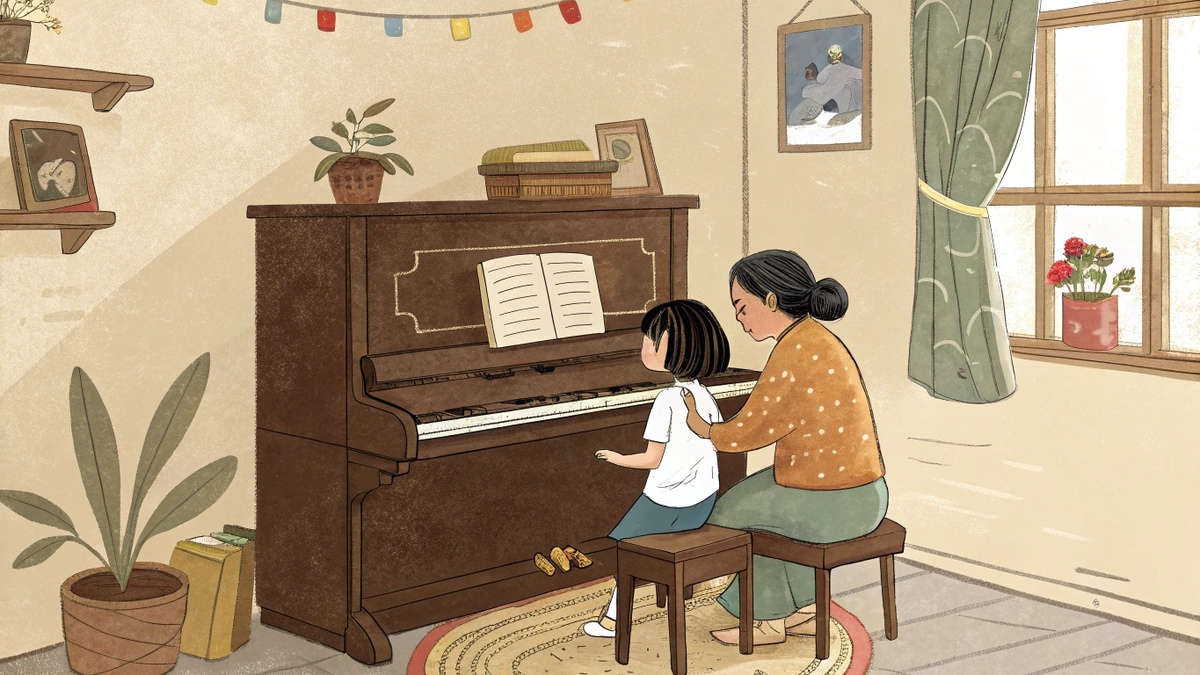


















































































![[Infographic] In 2025, 47 products will achieve national OCOP](https://vphoto.vietnam.vn/thumb/402x226/vietnam/resource/IMAGE/2025/7/16/5d672398b0744db3ab920e05db8e5b7d)





Comment (0)